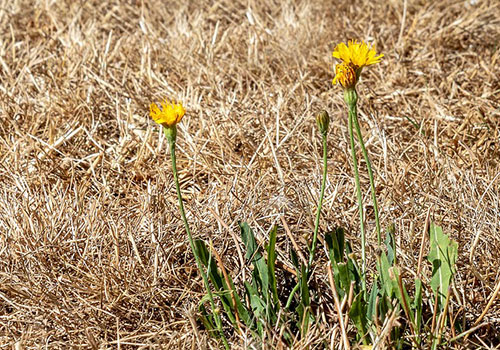Trustee Bonnie Christie’s “Watershed Moment”

On September 22, 2019, The Concord Monitor published “My Turn: The Oppressive Heat of a Watershed Moment” by Five Rivers’ Trustee Bonnie Christie. The article is about the moment Bonnie made the connection between the impact of climate change on her life and the promise that the land around us holds for creating a solution. As you read it, think whether you have had a “watershed moment.” What experiences brought you to supporting land conservation? We’d love to hear your story! Drop us an email at info@5rct.org.
My Turn: The Oppressive Heat of a Watershed Moment
The spider has moved. The tiny, crab-shaped creature who has been making its home in my sunroom isn’t haunting its usual territory. It has been inhabiting the angles of the vaulted ceiling where, I suppose, it finds insect-trapping most rewarding. But there it is, hugging the flat surface above the whirling blades of the ceiling fan. This strikes me not only as an unlikely insect habitat, but equally inhospitable to web-spinning.
But then, another thought: Perhaps, in a Sophie’s Choice between sustenance and survival, the cooling air won out.
On this particular day, at 97 degrees with near 100% humidity, I too have sought out the coolest locations. I have stayed indoors, kept the shades drawn, eaten only cold foods, avoided electricity use – except for the ceiling fan – to keep the temperature as low as possible.
For the past week the heat has barely dissipated at night and creeps back shortly after sunrise. If I had risen earlier, I might have taken my little dog Brownie for a walk through the village, but by the time I consumed my coffee we had missed the window of opportunity.
At midday I resist the urge to rush out like a firefighter and give my garden a soak. All good gardeners know to avoid watering in the heat of the day so less water will be lost to evaporation and more delivered directly to the plants. But by early afternoon I give in. I emerge from my house on a rescue mission.
Now I wish I had followed my instincts. If the lilies and sunflowers had tongues, they would be dragging in the dirt. My rainbow chard has yellowed, basil leaves droop, zinnias lean like botanical towers of Pisa. Entire tomato plants bend over their cages like Gumbies. I feel like an emergency responder who arrives late at the scene and frantically searches for a pulse amid multiple crash victims.
This mission has become resuscitation.
Grass
I drag the hose from its neat coil by the spigot and trudge across sere grass littered with brittle pine needles. The lawn crunches underfoot, oddly reminiscent of the sound of boots on snow when the temperature dips below 14 degrees. In my anthropomorphic way, I hear this as a courtesy call from Earth: Crunch – Earth to amygdala. Crunch – Earth to amygdala! It’s an audible warning to the part of the brain that initiates fight or flight when survival is at stake, telling me that if I stay out here long enough the safety zone for optimal human brain function will be breached. Ninety-eight and six-tenths is considered normal body temperature; if it falls below 94, hypothermia begins to cause stupefaction, while above 104 hyperthermia triggers delirium, then heat stroke.
When things get crunchy, it’s time to think about temperature regulation.
Does a blade of grass have an amygdala? The surface temperature where I am standing measures 123. Thirty feet away under a clump of hemlocks, it registers 78 – an amazing 45-degree difference. Amygdala or not, grass surely doesn’t have feet, so proximity to shade is of no consequence when the sun beats down. To make things worse, even though the irrigation system is fully functional, water percolates immediately and deeply into these sandy soils, beyond the reach of the thirsty 1-inch roots of turf grass.
My neighbor says the brown patches aren’t dead, only gone dormant. Either way, it doesn’t appear that this poor grass can be revived anytime soon so I turn my focus to what holds the best chance for survival. I set the sprinkler in the center of the garden and turn it on.
Dissection
As the tiny droplets arc out, I sense an internal shift. It’s more than the perspiration breaking out on my brow, more than a sudden craving for iced tea, more than an urge to throw myself under the nearest shade tree. It’s an awareness of something lethal, triggering what I can only describe as an aortic dissection of the psyche.
I am reminded of a reflection about change by the writer Terry Tempest Williams: “It’s strange to feel change coming. It’s easy to ignore. An underlying restlessness seems to accompany it like birds flocking before a storm. We go about our business with the usual alacrity, while in the pit of our stomach there is something tenuous. These moments of peripheral perceptions are short, sharp flashes of insight we tend to discount like seeing the movement of an animal from the corner of our eye. We turn and there is nothing there. They are the strong and subtle impressions we allow to slip away.”
Today’s impressions are neither peripheral nor subtle: They are dead center and searing. For the first time, my intellectual concerns about a warming planet become more than global models of arctic ice-melt, news stories about Western communities incinerated by wildfires, or video of millions of tons of topsoil washing away in freak Midwest flooding. It’s impossible to discount what is tangible right here, right now, to all five senses. I can see, hear, smell and touch this change, and if I could taste it I’m pretty sure it would have the flavor of dirt and dead vegetation.
Earth to amygdala: This is not California, Arizona, Florida or any other notoriously hot part of the country. This is New Hampshire, and Dante’s Inferno has arrived. It is licking my feet, infiltrating my house, desiccating my garden and driving living creatures into places only the desperate dare go. Wait – isn’t this supposed to be slated for the next decade, the next generation, the next century? Yet here, today, the lifeblood of the Earth is evaporating before my eyes.
I stare at the rotating spray. What was I thinking? I came out here to save my garden but my efforts seem as shallow as the roots of this grass that was never meant to grow here.
This is not enough. A million sprinklers wouldn’t be enough.
Staring at it only paralyzes me. I need to change focus. We need a cooler planet.
“I will lift up mine eyes . . . from whence cometh my help?” Can any ancient wisdom be called up to keep me grounded?
And then, there it is. How have I missed this connection? I leave the sprinkler on full throttle and walk directly toward the forest.
Forest
Sixty feet away, beyond the clump of hemlocks that offers the amazing temperature differential, white pines, American beeches, red oaks, paper birches, popples and scattered maples rise in a dense tangle. This is where birds chorus in the morning before the neighborhood stirs, deer follow familiar paths, fisher cats, raccoons and skunks travel silently in the night, leaving telltale tracks. Where I gather moss and partridgeberry and tiny ferns for the terrarium I assemble every fall to keep me company through the long winter.
Here, also, is where a heavily shaded brook flowing from an upstream beaver pond carves a ravine, tumbles over mossy boulders, winds downward until it pools in wetlands. From there it passes under Main Street, is captured by a second beaver pond, seeps under the ancient stones of a now-abandoned railroad bed, through an archway formed by a fallen oak, where it empties into the Contoocook River.
River
Downstream along the river’s edge, children shimmy up overhanging trees to catch ropes, swing out and plunge into its cooling water. Kayakers put in at the boat launch to follow the current past farms on fertile floodplains, paddle under more stone bridges and portage around old dams from bygone mills.
The Contoocook flows north for 71 miles from its source to its confluence with the mighty Merrimack, which then flows south, crossing into Massachusetts, where it ends its journey in a vast salt marsh near Plum Island on the shores of the Atlantic. This little brook that feeds the Contoocook, that feeds the Merrimack, that feeds the ocean has no name. It is considered too insignificant to have a title on the map. But for me its significance is huge.
Today I need to see it.
Ravine
Ten feet into the forest it is lush with ferns, mosses, huge pines, downed trunks of fallen giants, and branches dropped in heavy winds and snowfalls, or simply from old age. A thick detritus of leaves, twigs, pine needles, blankets rich soil that has formed over the sandy base from centuries of forest cover doing what it does: perpetuate itself in the complex mosaic of a native New Hampshire ecosystem.
Here, the ambient temperature is 8 degrees cooler than the hemlock oasis on the lawn, which was 45 degrees cooler than the lawn itself. I bushwhack down the slope, scrambling over rotting logs, post-holing in hidden cavities, balancing on rock edges, sidestepping piles of deer droppings.
I can hear the brook. As I get closer, I see the play of dappled light filtering through the overstory, illuminating the running water. Brownie, ever the water dog, heads toward it like a homing pigeon, wades in and stands in ecstasy, letting the coolness bathe his legs and belly, as if he is soaking it into his body. I, too, step in. I sit on a flat rock and let it flow around my feet and legs. Let everything flow – water, worries, despair.
Here in the ravine the temperature at ground level registers yet another 2 degrees lower – 68, which is an astonishing 55 degrees cooler than the surface temperature back on the lawn.
No crunching in here. Just the soothing babble of the water.
My amygdala goes quiet.
This brook does have a name. It is “Grace.”



